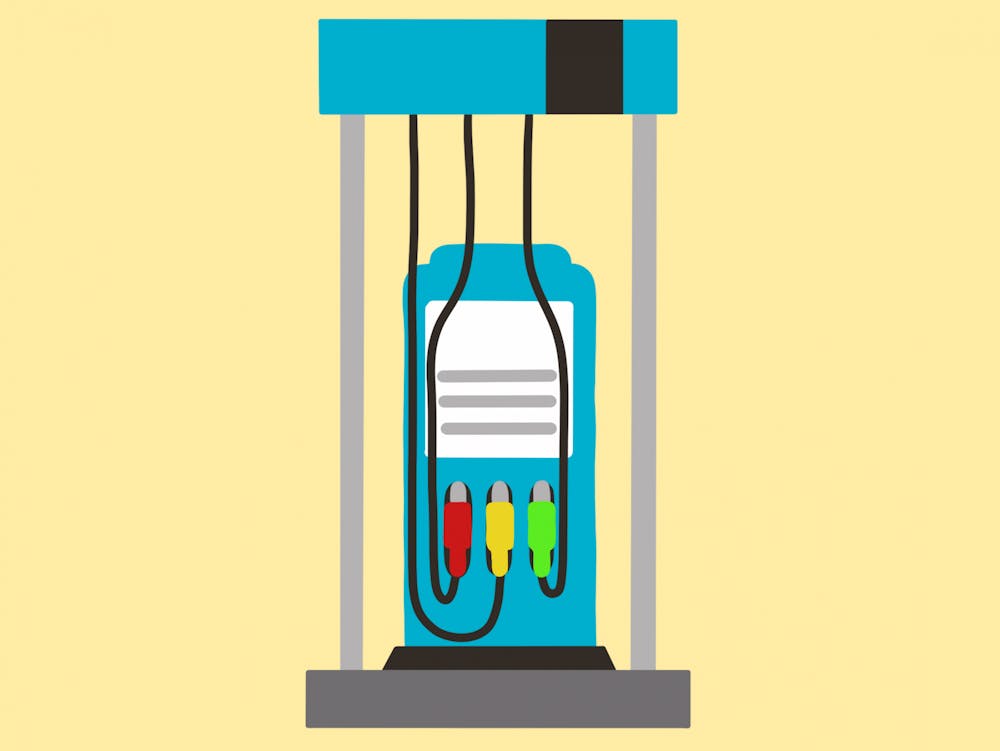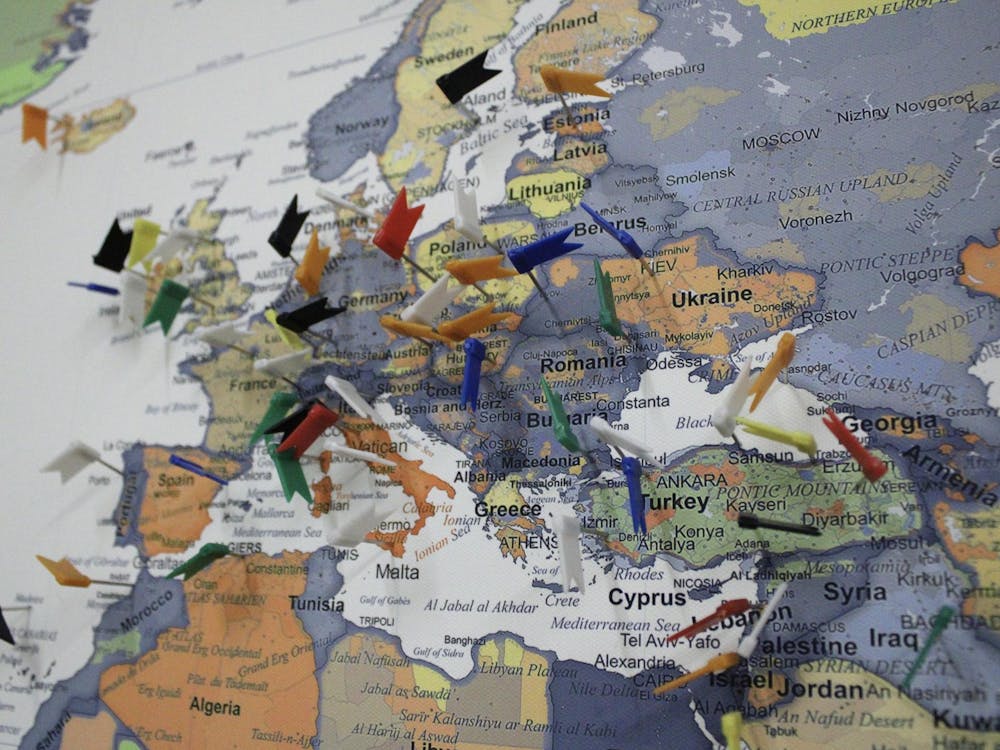Last week, I drove to Farmville, Va. from Charlottesville to visit a friend — not the kind of trip I frequently take. I had planned this trip for about a month. This meant ensuring that I had the half a tank of gas leftover from my drive to Charlottesville in January. It also meant making sure I bought fewer groceries than normal to prepare for this trip, during which I would inevitably have to refill my tank. That stop at the gas station came sooner than expected. Leaving Charlottesville, gas prices were frankly scary. They exceeded $3.40 at most stations. Though I would not need gas until the trip back to Charlottesville, I did not want to risk the price going up. Luckily, I ventured upon a Sunoco station with a $3.33 price tag. I refueled there, paying $28.12 for about three-fourths of my tank. For college students on a small budget, $28.12 can be over two weeks’ worth of grocery basics — milk, lettuce, bananas, blueberries, cheap snacks and some frozen dinners.
I am specific here because I have to be. Like many other college students, I cannot thoughtlessly pay for even the most basic necessities. I must stay aware of the money in my bank account. Spending more than $30 at Kroger feels like I am cutting off a limb. It is a terrifying amount of money for someone who is still searching for a summer job. It is a terrifying amount of money for someone who has just dropped hundreds of dollars on textbooks for a new semester. It is a terrifying amount of money because it is a terrifying amount of money. $30 is not a small number, no matter how many people think it is.
Gas prices have been on the rise in part due to increasing oil prices across the globe. However, Russia’s invasion of Ukraine has created immediate anxieties around gas prices. Although the U.S. has not placed sanctions on the large amounts of oil and gas exported out of Russia, other financial sanctions have placed pressure on oil reserves. This largely stems from uncertainty around if further sanctions — including ones on oil and gas — will arise and how likely a global war is following Russia’s aggression. This bloody conflict will cause the cost of gas and groceries to increase in ways that will make covering them harder for many people — including students here at the University. Though these patterns are still in their early stages, they have begun, and neither we nor the University can ignore them.
Spring break is next week. Many of us will be driving for multiple hours. I’ll be staring at another $60 in gas expenses that I frankly cannot afford, though I and others have no choice but to shell out the money. With this in mind, I call on University administration to create a fund in light of international events that will impact the day-to-day lives of University students. Although our financial aid supposedly considers the cost of travel expenses, I have never received a penny to help cover immediate gas costs. Aid often remains an intangible cloud of loans and scholarships that put no money directly into our pockets. Students of low to middle-class backgrounds still must bear the brunt of rising living expenses.
The University has one of the largest endowments for public universities in this country. I call on administrators to use it immediately. I believe it is necessary to have a fund for reimbursement of student gas and grocery costs before classes begin after spring break on March 14. Students need financial security right now and the conviction that their administration is working towards ensuring it. These rising costs will not dissipate, nor does it seem that Russia intends to call its troops out of Ukraine and end its senseless slaughter of civilians. The University should thus act to assist students financially impacted by rises in global costs of basic necessities.
Student Council marks another potential avenue of reimbursement. Its spring budget totaled just over $180,000. While this money has already been allocated to Student Council’s subcommittees, its Financial Accessibility Subcommittee owes it to the student body to advocate for a reimbursement fund. With new representatives and executive members being elected this month, this issue cannot be swept under the rug by a new group of student leaders. I call on all elected representatives to recognize rising gas and grocery costs and to vow to advocate for students in need.
Some will inevitably call rising gas prices a small sacrifice for democracy and call on the U.S. to sanction Russian gas and oil. I wholeheartedly reject this, and I believe our government’s refusal to sanction Russian gas and oil indicates their shared belief. But a lack of oil sanctions does not mean costs will stay low. Those of us in Charlottesville should be grateful we are not in Ukraine. However, we should still keep in mind the challenges that people in other nations will face due to Russian aggression. $30 is a terrifying amount of money — let us find a way to make it seem a little less so.
Bryce Wyles is an Opinion Editor for The Cavalier Daily. He can be reached at opinion@cavalierdaily.com.
The opinions expressed in this column are not necessarily those of The Cavalier Daily. Columns represent the views of the authors alone.







